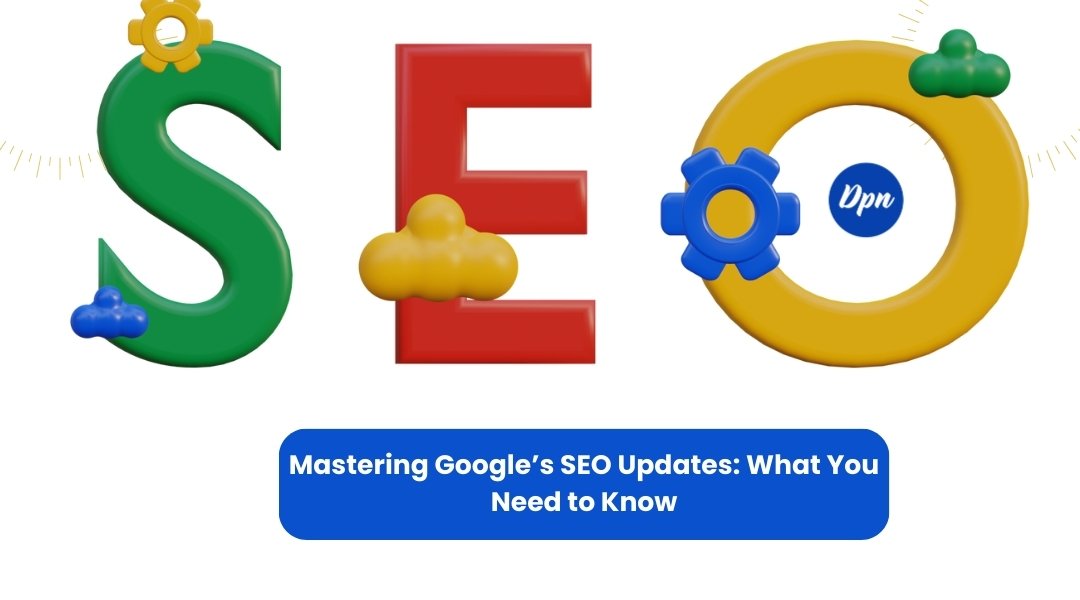Understanding Google’s Latest SEO Updates
In the ever-evolving world of digital marketing, staying updated with the latest changes in SEO (Search Engine Optimization) is crucial. Recently, Google has rolled out several significant updates that every digital marketer, content creator, and business owner should be aware of. These updates can significantly impact your website’s search rankings and overall online visibility. But what exactly are these updates, and how can you adapt to stay ahead of the curve?

What Are Google’s Latest SEO Updates?
Google frequently updates its search algorithms to improve user experience, deliver more relevant search results, and crack down on spammy or low-quality content. Some of the recent updates include changes to the core algorithm, new ranking factors, and enhancements to existing ones. These updates often come with a mix of excitement and apprehension within the SEO community, as they can lead to fluctuations in website rankings.
Key Changes in Google’s Recent Updates
One of the most significant changes is the incorporation of Core Web Vitals into Google’s ranking criteria. Core Web Vitals are a set of metrics related to speed, responsiveness, and visual stability of pages. These include Largest Contentful Paint (LCP), First Input Delay (FID), and Cumulative Layout Shift (CLS). Websites that score well on these metrics are likely to rank higher in search results.
- This update emphasizes the overall experience a user has while interacting with a webpage. It includes Core Web Vitals along with other factors such as mobile-friendliness, HTTPS security, and the absence of intrusive interstitials (pop-ups). Google aims to reward sites that offer a smooth, safe, and enjoyable user experience.
Google’s passage ranking update allows specific passages or sections within a page to rank independently of the page as a whole. This means that even if a webpage covers multiple topics, a single relevant section can appear in search results if it directly answers a user’s query. This change is particularly beneficial for long-form content.
The BERT (Bidirectional Encoder Representations from Transformers) update, initially rolled out in 2019, continues to be refined. BERT helps Google better understand the context and nuances of words in a query, leading to more accurate search results. This update reinforces the importance of creating high-quality, contextually relevant content.
- Google has introduced new algorithms to better detect and combat spam. This includes identifying manipulative link-building practices, keyword stuffing, and low-quality content. Ensuring that your SEO practices are ethical and focused on providing value to users is more important than ever.
How Can You Adapt to These Updates?
Staying ahead of Google’s updates requires a proactive approach. Here are some strategies to help you adapt:
- Optimize for Core Web Vitals: Improve your site’s loading speed, interactivity, and visual stability. Tools like Google’s PageSpeed Insights can help identify areas for improvement. Focus on optimizing images, reducing server response times, and ensuring a seamless user experience.
- Enhance User Experience: Prioritize mobile-friendliness, secure your site with HTTPS, and avoid intrusive pop-ups. Ensure that your site is easy to navigate and that content is accessible and engaging across all devices.
- Create High-Quality, Relevant Content: Focus on producing well-researched, in-depth content that addresses the needs and queries of your audience. Use clear headings, subheadings, and bullet points to make your content easily scannable.
- Leverage Passage Ranking: Structure your content to include clear, distinct sections that address specific topics or questions. This increases the chances of individual passages being ranked independently, providing more opportunities for visibility.
- Follow Ethical SEO Practices: Avoid black-hat SEO techniques such as buying links or keyword stuffing. Instead, build a robust backlink profile through guest posting, influencer collaborations, and creating shareable content. Ensure that your SEO strategies align with Google’s guidelines.
The Importance of Continuous Learning
SEO is not a one-time task but an ongoing process. Staying updated with the latest trends, algorithm changes, and best practices is crucial for maintaining and improving your search rankings. Follow reputable SEO blogs, participate in webinars, and engage with the SEO community to keep your knowledge fresh and relevant.
Conclusion
Google’s latest SEO updates highlight the importance of providing a superior user experience, creating high-quality content, and following ethical SEO practices. By understanding these updates and adapting your strategies accordingly, you can improve your website’s visibility and ranking on Google. Are you ready to take your SEO game to the next level? Start optimizing today and stay ahead in the digital landscape.
How are you planning to adjust your SEO strategy to align with Google’s latest updates? Share your thoughts and experiences in the comments below!
By staying informed and proactive, you can navigate the ever-changing SEO landscape and ensure that your website continues to thrive. Remember, the key to successful SEO is not just about keeping up with updates but also about consistently providing value to your audience. Happy optimizing!